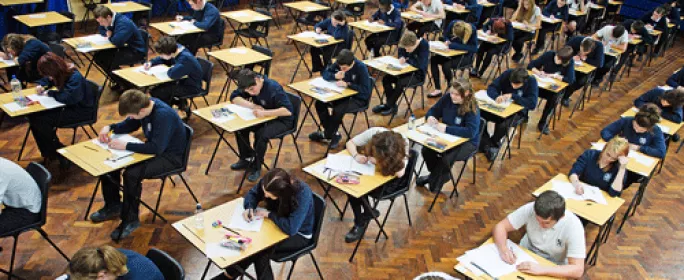It’s time to “slay the sacred cow of progress” as a means of holding schools to account and instead focus on improvement, according to the leader of the largest headteachers’ union.
Russell Hobby, general secretary of the NAHT, says that assessment in education has become “riven with contradiction, risking chaos”, and that it is time for a dramatic rethink on school-level accountability.
The call comes as the government places even greater onus on progress as a measure of schools, with the introduction of baseline tests at the start of a child’s formal education and the new Progress 8 measure at GCSE that tracks a student’s attainment since key stage 2 tests.
Mr Hobby puts forward his controversial proposal in a blog, in which he decries progress as the root of many of accountability problems.
The decision by the government to remove levels does not tackle the underlying issue because schools are simply left to “invent their own approaches to assessment”, which are then used to hold them to account, he writes.
“Perhaps the time has come to slay the sacred cow of progress,” Mr Hobby continues. “It is the need to constantly demonstrate progress which is at the heart of some of these problems.
“My suggestion is that, for school-level accountability, we replace pupil progress with school improvement. And that we hold schools accountable for outcomes while trusting them to develop whatever tracking systems they consider appropriate.”
Schools would then be held to account for the improvement they make to attainment over time. Lower performing schools would be expected to make greater gains, while improvements would “taper” among higher performing ones.
“The advantage of these suggestions is that they return formative assessment firmly into the hands of the profession,” Mr Hobby writes.
“The government plays no role on assessment other than the key summative tests at key stage 2, 4 and 5. Assessment in schools is used to check what children understand and decide how teaching should be adapted. It doesn’t need to be transferable or standardised as that is not its purpose.”
Related stories:
Commission created to help schools assess without levels - 25 February 2015
Drop ‘outstanding’ rating, Ofsted told - 22 March 2015




